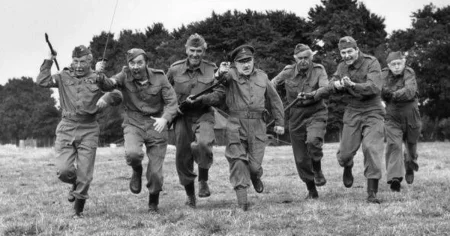The Hillsborough disaster, Britain’s worst sporting disaster, occurred 35 years ago, resulting in the death of 97 people. The writer reflects on the pain and anger that still remain, emphasizing that while the truth about the unlawful killings has been established, justice was never fully served. They express frustration that only minor charges were brought against individuals responsible for criminal negligence and the subsequent cover-up. Moreover, they highlight the ongoing hurt caused by false narratives perpetuated by rival football fans, which suggest that the victims were to blame for their own deaths. The writer laments the lack of accountability and calls for a stop to insensitive chants related to the tragedy, especially for the sake of bereaved families and survivors who experience continued trauma.
Despite this lingering pain, efforts to educate younger generations about the truth of the Hillsborough disaster offer a glimmer of hope. The Real Truth Legacy Project, led by Labour MP Ian Byrne, aims to inform schoolchildren about the events of that tragic day. Witnessing the emotional impact on the students during these educational sessions underscores the power of awareness and understanding. By teaching children the facts about disasters like Hillsborough, there is potential to foster a generation of football fans who reject the insensitivity of tragedy-based chants. The writer sees education as the key to combating ignorance and ensuring that future fans approach these sensitive topics with empathy and respect.
The writer recounts the annual ritual of visiting the Hillsborough memorial and reflects on the sense of loss that permeates each visit. They ponder the untimely deaths of young fans and question how authorities could neglect their duty to protect and care for those in their charge. The lack of justice for the victims and their families weighs heavily, especially when confronted with hurtful chants that perpetuate falsehoods about the tragedy. Despite the passage of time, the pain remains fresh, exacerbated by the ignorance and insensitivity displayed by some football fans who engage in derogatory chants. The writer acknowledges the challenge of changing entrenched attitudes but remains hopeful that continued education and awareness efforts will eventually lead to a more empathetic and informed fan base.
The writer expresses frustration with the lack of consequences for the individuals who were responsible for the Hillsborough tragedy. While the truth of the fans’ unlawful killings has been established, the failure to hold authorities and police officers accountable for their negligence and cover-up adds to the ongoing anguish felt by the survivors and families of the victims. The writer emphasizes that justice was not fully served, as the only person convicted received a minor health and safety charge, while police officers faced no repercussions. This lack of accountability contributes to the enduring pain and anger surrounding the disaster, further fueled by insensitive chants from rival football fans that perpetuate false narratives about the tragedy.
Efforts to educate young people about the true events of Hillsborough offer a glimmer of hope for the future. By engaging schoolchildren in discussions about the disaster and its impact, the Real Truth Legacy Project aims to counteract misinformation and foster a culture of respect and empathy among the next generation of football fans. The writer is encouraged by the positive response from students during these educational sessions, noting that awareness and understanding can lead to more compassionate attitudes towards tragedies. They believe that sustained education on events like Hillsborough is essential in challenging ignorance and insensitivity, paving the way for a more enlightened and empathetic fan base in the future.
In conclusion, the writer reflects on the enduring pain and anger surrounding the Hillsborough disaster, 35 years after the tragic event. Despite efforts to establish the truth about the unlawful killings, justice has not been fully served, contributing to the ongoing trauma experienced by survivors and families of the victims. The writer emphasizes the need for increased awareness and education to combat false narratives and insensitivity, particularly in the realm of football culture where hurtful chants persist. They advocate for continued efforts to educate young people about tragedies like Hillsborough, believing that knowledge and understanding are key to fostering empathy and respect among future generations of football fans. The writer remains hopeful that through education and awareness, the legacy of Hillsborough can inspire positive change and lead to a more compassionate fan base in the years to come.














